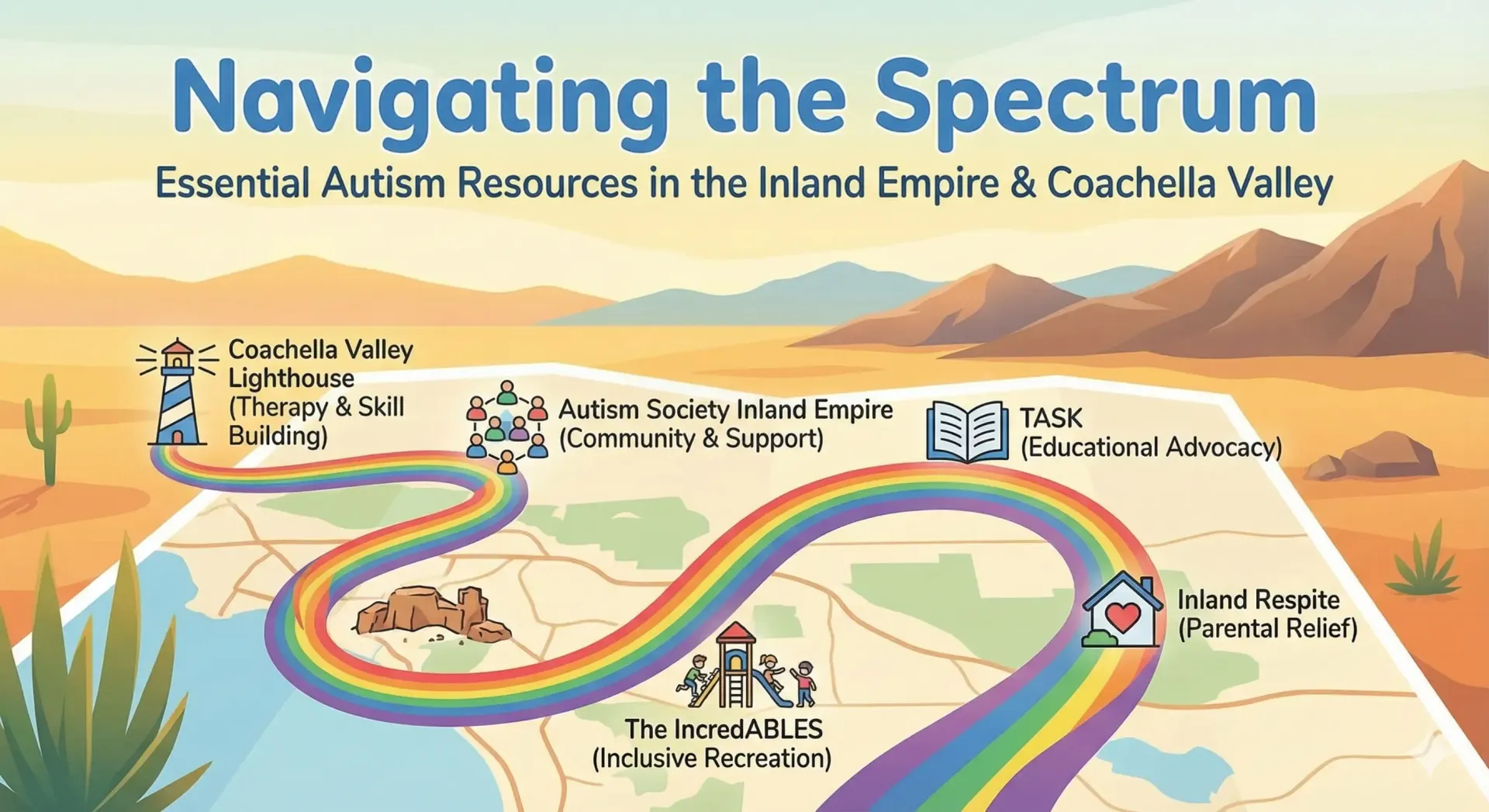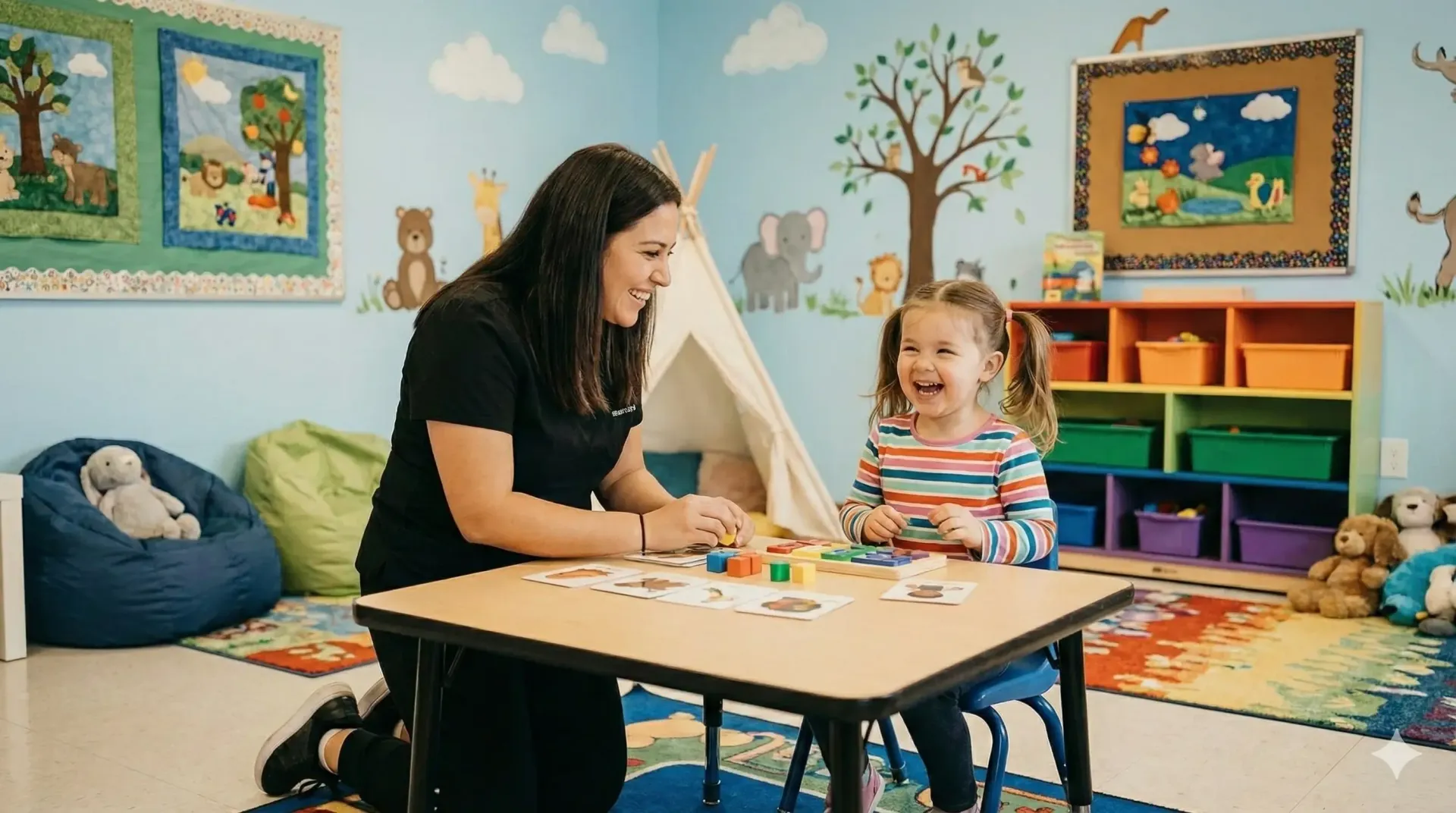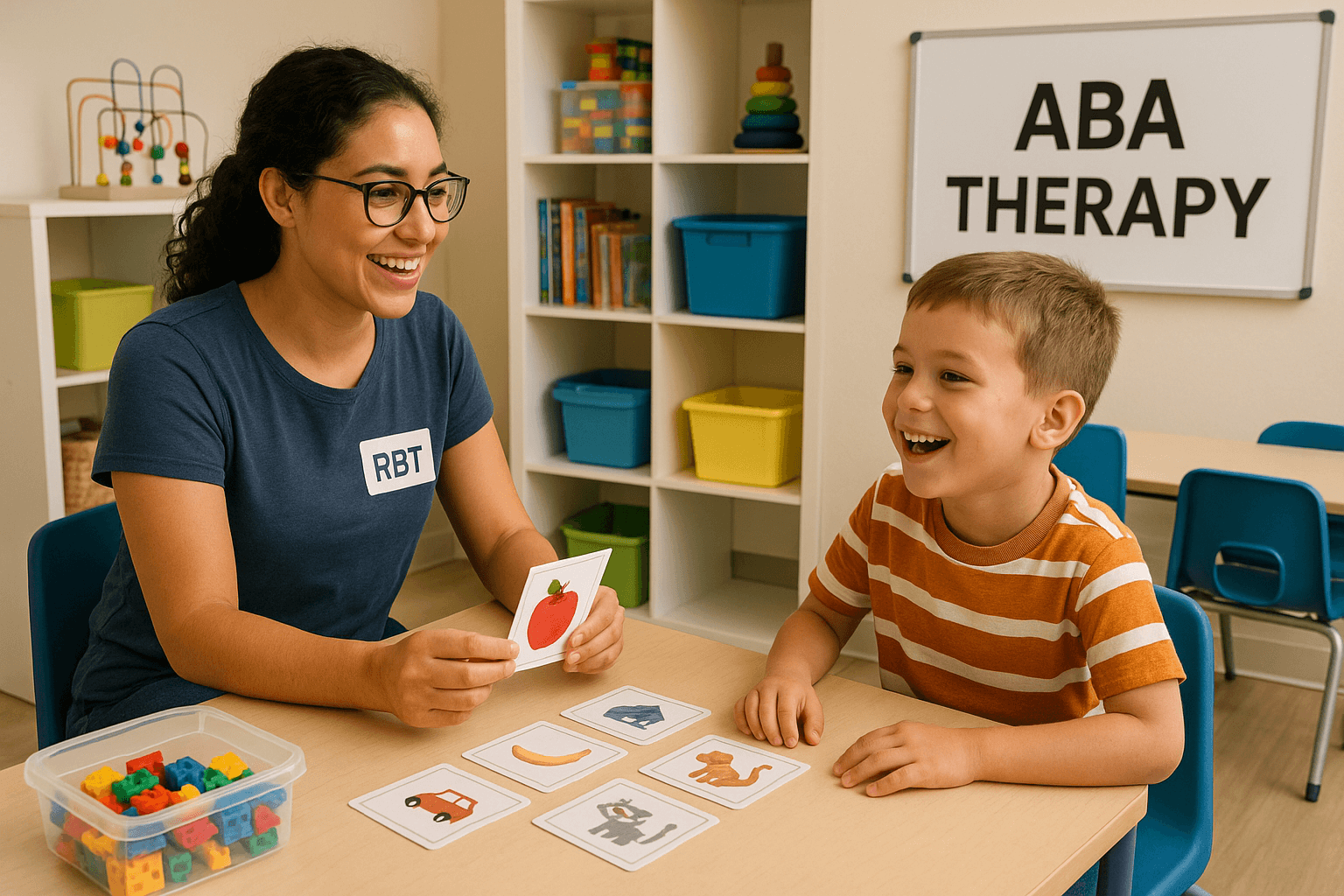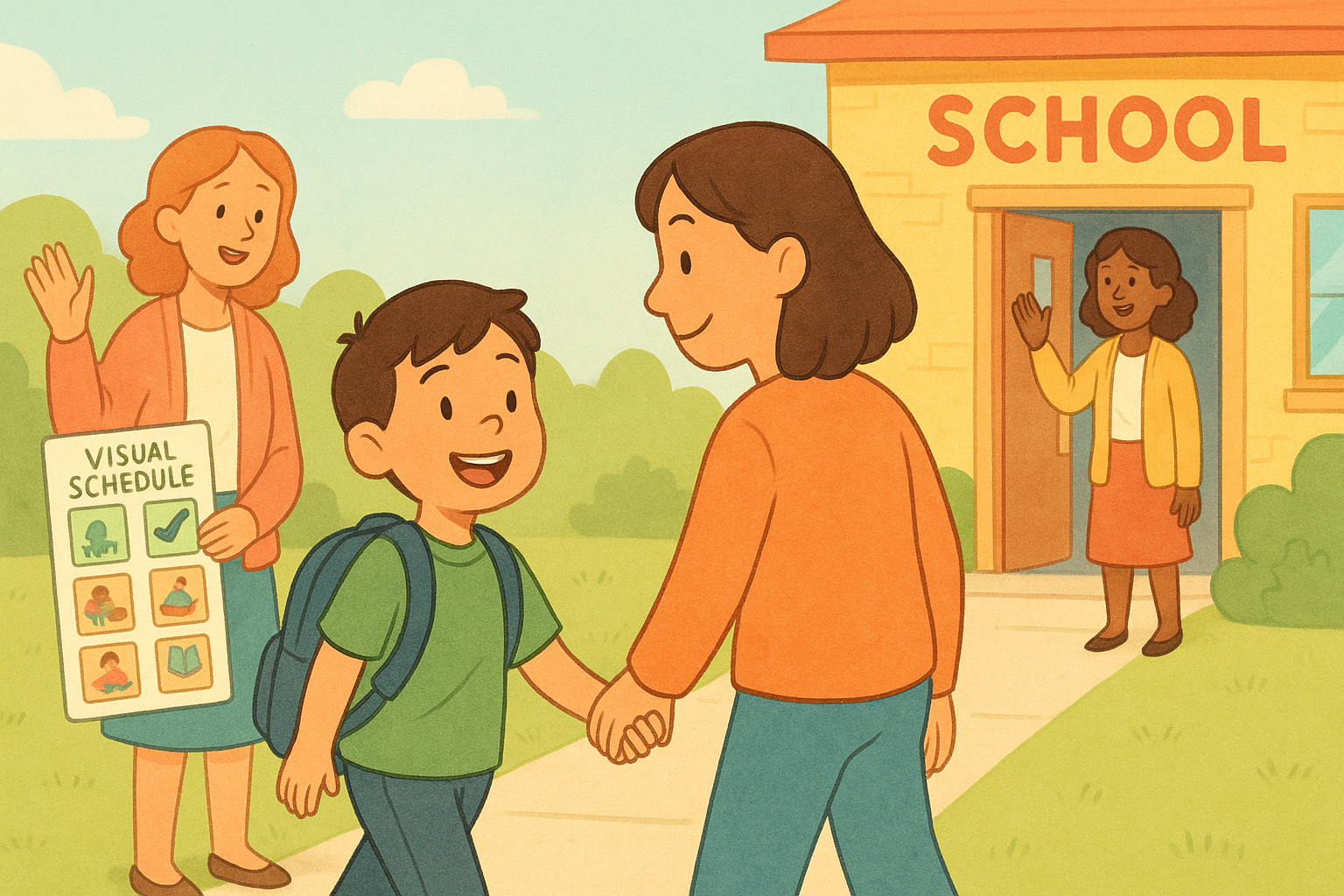The Ultimate Guide to Choosing the Right ABA Therapy Program for Your Child
Suppose you're a parent seeking the best care for your child with Autism Spectrum Disorder (ASD). In that case, you understand the significance of selecting the right ABA (Applied Behavior Analysis) Therapy program. This decision can significantly impact your child's development and future. To ensure you make an informed choice, follow this comprehensive guide.
Assessing Your Child's Needs
Every child with ASD is unique, and their therapy requirements vary. It's crucial to recognize that every child with Autism Spectrum Disorder (ASD) is one-of-a-kind. Their personalities, strengths, and areas of improvement differ significantly. Embracing this individuality is the first step in providing effective ABA (Applied Behavior Analysis) therapy.
The Significance of a Thorough Assessment
A thorough assessment is paramount to tailor ABA therapy to your child's specific needs. This assessment should encompass a holistic view of your child, focusing on their:
Strengths: Begin by identifying your child's strengths and unique abilities. These strengths can serve as building blocks for their progress during therapy. For example, a child interested in numbers might excel in mathematical tasks.
Weaknesses: Understand the areas where your child faces challenges. This could involve communication difficulties, sensory sensitivities, or difficulties with social interactions. Identifying weaknesses helps in targeting interventions effectively.
Specific Challenges: Delve into the specific challenges your child encounters daily. These challenges may manifest as repetitive behaviors, meltdowns, or difficulties adapting to new routines. Pinpointing these challenges allows Board Certified Behavior Analyst to develop strategies for managing them.
Setting Clear Goals for ABA Therapy
Once you've conducted this assessment, the next crucial step is setting clear and attainable goals for ABA therapy. These goals should be:
Specific: Define the exact behaviors or skills you want to address. For instance, you are improving verbal communication or reducing cases of sensory overload.
Measurable: Establish criteria to measure progress objectively. This could involve tracking the digits of words your child speaks or the duration between sensory-related meltdowns.
Achievable: Ensure the goals are realistic and attainable within a reasonable timeframe. Setting achievable goals prevents frustration and encourages steady progress.
Relevant: Align the goals with your child's unique needs and priorities. Focus on areas that will have the most significant impact on their daily life.
Time-Bound: Determine a timeframe for achieving each goal. This adds a sense of urgency and allows for periodic evaluation.
Researching ABA Therapy Providers
With a clear understanding of your child's needs and goals for ABA therapy, the next crucial step is to research and identify the most suitable ABA therapy providers in your area. Here's a detailed guide on how to go about this process:
Specialization in ABA Therapy
Begin your search by focusing on centers that specialize in in-home ABA therapy. These centers typically have a team of professionals with extensive experience in implementing ABA techniques effectively. Look for providers with a dedicated focus on autism and ABA as their primary areas of expertise. CV Lighthouse, a dedicated center, provides in-home ABA therapy services catering to all ages in Riverside, San Bernardino, and Imperial Counties. Initiate the process by
scheduling a free consultation with us.
Certified and Experienced Therapists
The therapist's competence is one of the most critical factors in ABA therapy. Ensure that the center employs certified professionals, such as Board-Certified Behavior Analysts (BCBAs) and Registered Behavior Technicians (RBTs). These certifications indicate that the Board Certified Behavior Analyst has undergone rigorous training and adheres to high standards of practice.
Location and Convenience
Consider the location of the ABA therapy at your home. A convenient location can make it easier to attend regular therapy sessions without excessive travel time. Additionally, assess the ABA therapist’s working hours to ensure they align with your schedule and availability.
Availability and Waitlists
ABA therapy is often in high demand; some centers may have waitlists. Inquire about the availability of slots for your child and whether there is a waiting period. It's essential to plan and secure a spot that suits your timeframe.
Reputation and Reviews
Research the reputation of potential ABA therapy providers by reading online reviews and seeking recommendations from other parents or healthcare professionals. Positive thoughts and word-of-mouth recommendations indicate a therapist’s effectiveness and commitment to its clients.
Inquire About Customization
Please discuss their approach to tailoring therapy to individual needs with the Board Certified Behavior Analyst. Ensure they can create a personalized therapy plan that aligns with your child's unique requirements and goals.
Evaluating Program Curriculum
When considering an Board Certified Behavior Analyst for your child, the curriculum they offer plays a pivotal role in determining the effectiveness of therapy. Here's a comprehensive guide on how to evaluate the curriculum:
Alignment with Individualized Goals
The curriculum provided by the ABA therapist should align seamlessly with your child's individualized goals and needs. Inquire about how the Board Certified Behavior Analyst tailors their programs to address your child's specific challenges. Ensure that the curriculum is not one-size-fits-all but customized to meet your child's unique requirements.
Incorporation of Evidence-Based Practices
Verifying that the ABA provider incorporates evidence-based practices into its curriculum is essential. ABA therapy is continually evolving, and research-backed techniques have proven highly effective. Ask about the methods and strategies used and confirm that they align with current best practices in the field of ABA.
Teaching Methods and Strategies
Discuss in detail the teaching methods and strategies employed by the ABA provider. A well-rounded curriculum should encompass various instructional techniques, including discrete trial training, naturalistic teaching, and incidental teaching. Assess whether the therapist utilizes a blend of methods to ensure your child's comprehensive and engaging learning experience.
Data Collection Procedures
Accurate data collection is fundamental to tracking your child's progress during ABA therapy. Inquire about the therapist data collection procedures. Ensure that they systematically record and analyze your child's behavior and skill acquisition data. This data-driven approach allows for ongoing adjustments to the therapy plan based on your child's performance.
Progress Tracking and Communication
Transparency and communication are critical components of a successful ABA therapy program. Ask the Board Certified Behavior Analyst how they plan to track your child's progress and how frequently they will provide updates. Understand the metrics used to measure progress, such as behavior reduction, skill acquisition, and social improvements. Ensure that you receive regular reports and feedback on your child's development.
Family Involvement
An effective ABA therapist should actively involve you as a parent in therapy.Inquire about opportunities for parent training and collaboration. Active participation is essential for reinforcing therapy goals at home and ensuring consistency in your child's learning environment.
Assessing Therapist Qualifications
The qualifications of the therapists working with your child are paramount. Ensure the center employs Board-Certified Behavior Analysts (BCBAs) and Registered Behavior Technicians (RBTs). These professionals have the expertise to design and implement effective ABA programs.
Reviewing Parent Involvement
An excellent ABA center encourages active parent involvement. You should be an integral part of your child's therapy journey. Inquire about parent training sessions, progress reviews, and how to reinforce therapy goals at home.
Checking Insurance Coverage
Understanding your insurance coverage is essential to avoid unexpected financial burdens. Contact your insurance provider to determine the extent of ABA therapy coverage and any out-of-pocket expenses.
Seeking References
Feel free to ask the ABA center for references from other parents. Speaking with families who have experienced the program firsthand can provide valuable insights into the center's effectiveness and commitment.
Making the Final Decision
Once you've gathered all the necessary information, it's time to choose. Select the ABA center that aligns best with your child's needs, offers a comprehensive curriculum, and has qualified therapists. Remember that your decision is not final, and you can constantly reevaluate your choice if needed. Why choose Coachella Valley Lighthouse for ABA Therapy.
When embarking on the journey to find the right Applied Behavior Analysis (ABA) in-home therapy program for your child, Coachella Valley Lighthouse stands out as a beacon of excellence. With over 11 years of unwavering commitment to supporting individuals with Autism Spectrum Disorder (ASD), our center distinguishes itself as a trusted resource in Riverside County, San Bernardino County, and Imperial County.At Coachella Valley Lighthouse, we understand the paramount importance of tailored, evidence-based interventions.
As a family-owned business, we prioritize your child's unique needs and well-being. Our ABA therapy program, the gold standard for ASD treatment, is designed to unlock your child's potential, fostering independence and happiness. What sets us apart is our dedication to maintaining a 3:1 client to staff ratio, ensuring personalized attention and a supportive environment.
We offer in-home ABA therapy services, providing flexibility and convenience for families. With a clinician-run approach, we prioritize the quality of care, investing in extensive training and supervision to guarantee that your child receives superior, individualized services. Choosing Coachella Valley Lighthouse means choosing a partner in your child's journey toward growth and development. We go beyond therapy, providing exceptional parent coaching and support. Join our community, where your child's success is our shared mission. For more information or to begin your child's transformative journey, contact
Coachella Valley Lighthouse today.
Conclusion
In conclusion, choosing the right ABA Therapy program for your child is crucial to their development and well-being. By conducting thorough research, assessing your child's needs, and considering all relevant factors, you can make an informed decision that sets your child on the path to success.
FAQs
What is ABA therapy, and how does it benefit children with ASD?
ABA therapy is a structured, evidence-based approach that helps children with ASD develop essential skills and reduce challenging behaviors. It focuses on increasing desired behaviors and decreasing undesired ones.
At what age should a child start ABA therapy?
ABA therapy can benefit children diagnosed with ASD as early as age 2. However, it can be effective at any age, as therapy plans are tailored to the child's needs.
How long does ABA therapy typically last?
The duration of ABA therapy varies depending on the child's needs and goals. Some children may benefit from a few months of treatment, while others may require several years of ongoing support.
Does insurance cover ABA therapy?
Many insurance plans provide coverage for ABA therapy, but the extent of coverage can vary. It's essential to check with your insurance provider to understand the specifics of your coverage.
Are ABA therapists certified?
Yes, ABA therapists often hold certifications such as Board-Certified Behavior Analyst (BCBA) or Registered Behavior Technician (RBT). These certifications indicate that they have received specialized training in ABA techniques.
What types of skills can ABA therapy help children with?
ABA therapy can address many skills, including communication, social interaction, academic skills, self-help skills, and behavior management.
How often are ABA therapy sessions typically scheduled?
The frequency of ABA therapy sessions can vary based on the child's needs and the treatment plan. Sessions may range from a few hours a week to full-time intensive programs.
Can parents or caregivers be involved in ABA therapy?
Yes, parent involvement is encouraged in ABA therapy. Parents often receive training and guidance to support their child's progress at home and in other settings.
What should I look for in an ABA therapy provider?
When choosing an ABA therapy provider, consider factors such as their experience, certification of therapists, evidence-based practices, family involvement, and location.
Is ABA therapy effective for all children with ASD?
ABA therapy has shown effectiveness for many children with ASD. However, the degree of progress can vary from child to child. Customized therapy plans and early intervention often lead to the best outcomes.











